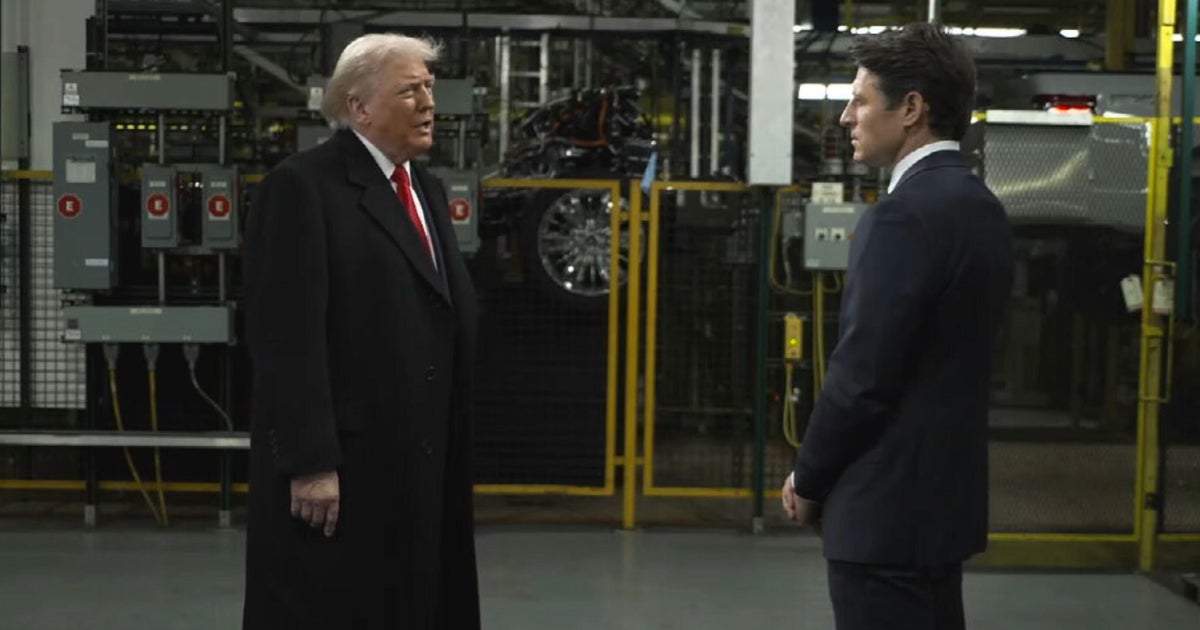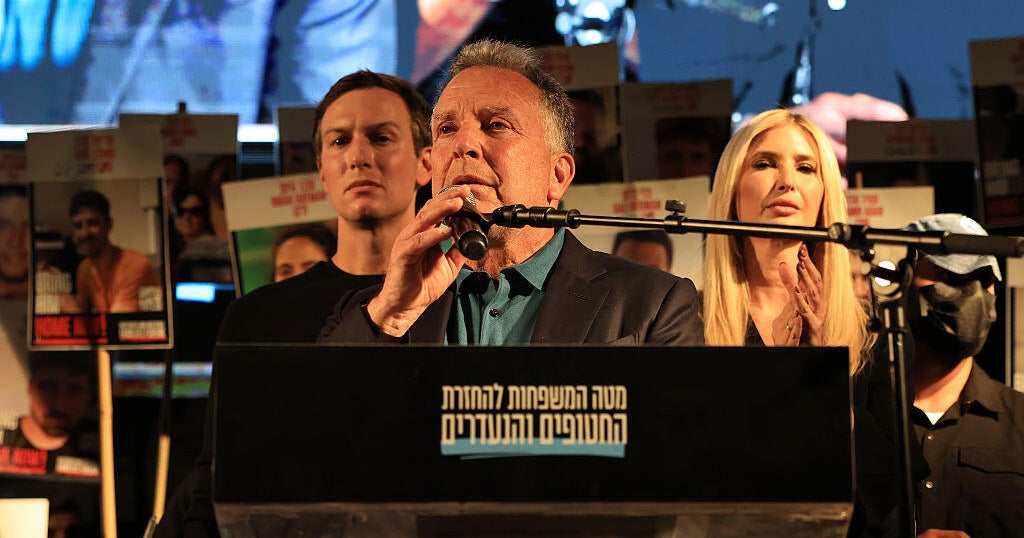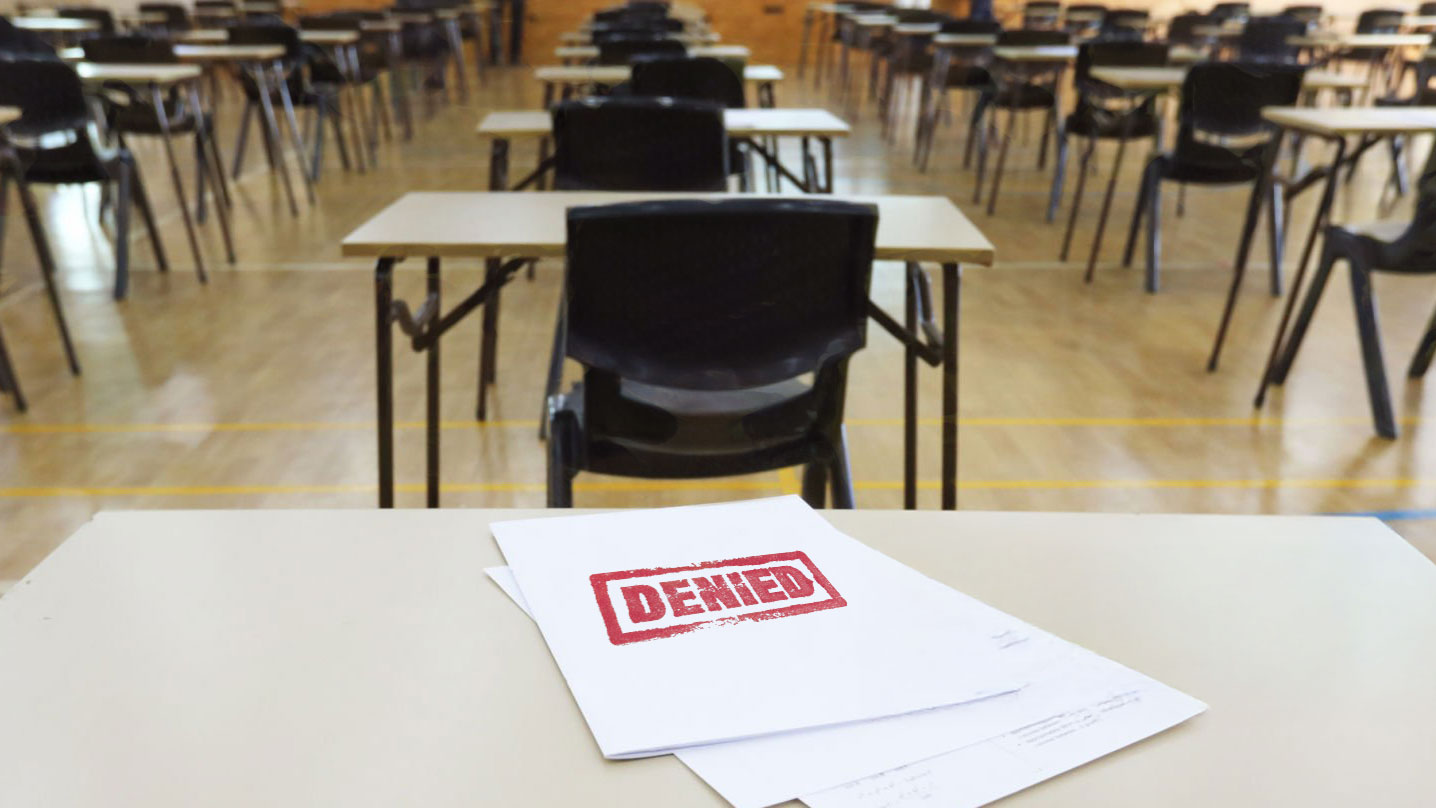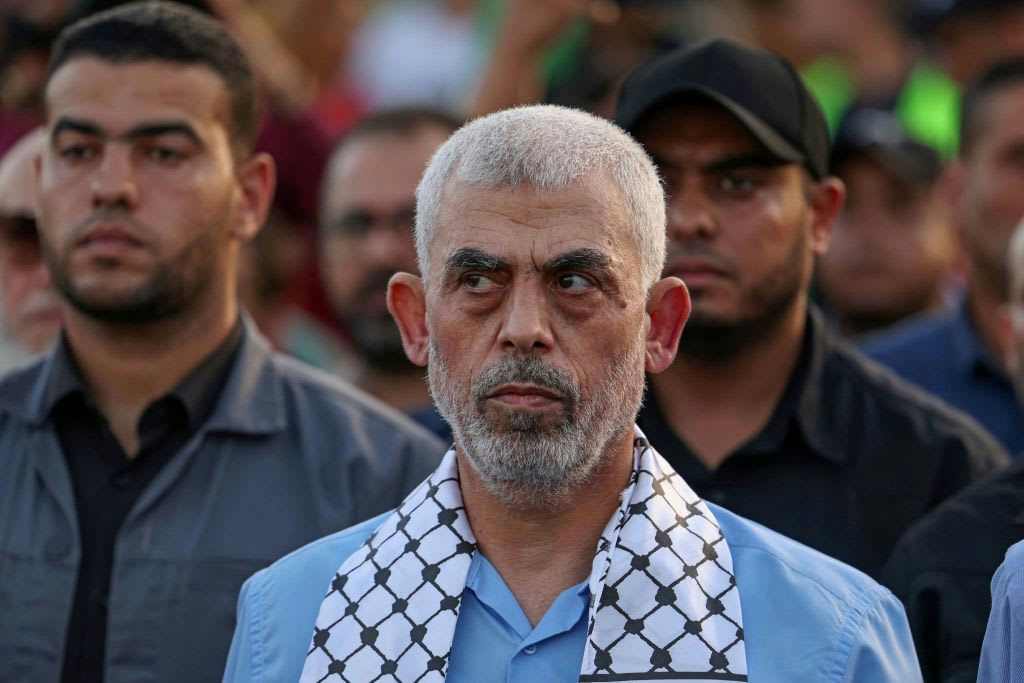Michael Herzog, Israeli Ambassador to the U.S., on "Face the Nation," Nov. 5, 2023
The following is a transcript of an interview with Michael Herzog, Israeli Ambassador to the U.S., that aired on Nov. 5, 2023.
MARGARET BRENNAN: We turn now to the Israeli Ambassador to the U.S. Michael Hertzog. Ambassador, good to have you here in person.
AMBASSADOR MICHAEL HERZOG: Thank you.
MARGARET BRENNAN: It's hard to believe it's been a month since we last spoke in the wake of the horrific attack on your country. I want to tap into some of your experience here, because before you're a diplomat, you're in the military. The White House said on Friday in the coming week, the Israeli military will have more of a tactical focus on the ground campaign to clear out specific areas. Are we moving into a new phase of this war?
AMB. HERZOG: So let me explain what we're up against. Gaza is probably the biggest terror complex in the world, you have tens of thousands of armed terrorists, tens of thousands of rockets, we estimate over 500 kilometers of tunnels, terror tunnels, with rockets, all their leadership command and control structure. This is what we're up against. And we have to uproot it, because if we do not, they will strike again and again, and I'm saying- they're saying it publicly. This is a very complicated military operation in a densely populated area, and we're trying to move the population away from that warzone. We are moving very slowly, very deliberately, but we are- our operation we believe is effective and will continue.
MARGARET BRENNAN: There are still 400,000 people in the North of Gaza according to the U.S. the area you say you're trying to clear out. But your military has encircled Gaza City, it has killed a lot of leaders of Hamas, and praise that as success. So at what point do you declare success? At what point do you stop this aerial campaign and move into more strategic tactics?
AMB. HERZOG: First of all, most of our campaign right now is carried out by ground forces. It's not an air campaign. That was the first phase. Now, we are not going to put a timeframe on-on this war. We did not stop-start this war. We don't- We did not want this war. But we cannot stop before we dismantle the terror machine, or else as I said, they'll strike again and again. And we have to make sure that when this ends, they are unable to strike again the way they did on October 7th. I think everybody in Israel is united around this goal.
MARGARET BRENNAN: Your Prime Minister said no ceasefire without the return of hostages. How close are we in those negotiations to get hostages freed?
AMB. HERZOG: We are making every effort to get hostages released and when people- people talk about pause in the fighting, we are all for a pause that would allow for the release of hostages unfortunately, unfortunately–
MARGARET BRENNAN: Only then?
AMB. HERZOG: Unfortunately- I'll explain the humanitarian issue. But unfortunately, we- it is not our impression that Hamas is serious about releasing them- they are playing full time, they're trying to stop our pressure and rearm and regroup themselves. When we see that they are serious about it, then we're all in. Nobody has to urge us. Most of the kidnaps are Israelis and our government is responsible to the families. So nobody has to urge us on this.
MARGARET BRENNAN: But the White House has said it was a test case and a successful one to have those two Americans and then those two Israelis released. Why do you think hostage talks are not successful now,
AMB. HERZOG: because Hamas is playing for time, because Hamas is trying to stop our military efforts. And I think the more pressure we put on them, the more chances there are that they may agree to release hostages.
MARGARET BRENNAN: So according to the US, there's the 400,000 people stuck in North of Gaza. There are 1000s of Palestinian civilian casualties. This is according the White House National Security Adviser. Seventy or more UN workers, 30 or more journalists who have been killed. Will your military change tactics as the US has asked?
AMB. HERZOG: We are making every effort to distinguish between terrorists and civilian population. We call them civilian population to move to the south out of harm's way. And Hamas is doing everything they can to keep them in harm's way most of the population moves to the South. And as we speak, and we are pressuring-pressing Hamas in the north, we are calling people to move out of harm's way. I would be very careful, very careful about judging those numbers. Because neither you nor I know how many of them are armed terrorists and how many of them are civilians. I don't know. And you don't know. Let me tell you one. Let me tell you more than that. On October 7th, Hamas attacked us with 3,000 armed terrorists. We're still collecting the bodies. We have 1,000 bodies of armed terrorists [UNINTELLIGIBLE]. Do they count them in the numbers? Oh, no, I don't know and you don't know. So let's be very careful about that because I don't know how many of them are terrorists, and I want to- our military says that he kills numerous terrorists in-in armed clashes. So let's be very careful about that.
MARGARET BRENNAN: Okay. Well, you just heard that the U.S.- one of the U.S. national security advisors raising concerns here. In terms of national security interest, there is that question of unintended consequences. Right? And that if you- we know from polling that there are a lot of people in Gaza who didn't support Hamas. But now with this campaign, this brutal with these number of casualties, there is the risk of radicalization of that population. How concerned are you about that?
AMB. HERZOG: We are. In every war, there are unintended consequences, and there's collateral damage. That's tragic. Every human life is tragic, Palestinian or Israeli doesn't matter. We act according to international law, we make every distinction that we can make between civilians and terrorists.
MARGARET BRENNAN: But is there an end point?
AMB, HERZOG: Now, now we call the population to move to the South to keep them out of harm's way. We- before we did airstrikes, we call specific families, buildings, ask them to leave. And Hamas is deliberately keeping them, and in part of our clashes in Gaza, they sent like 100 civilians to face our forces. That's the way they operate. This is tragic. This is tragic, but we cannot allow Hamas immunity just because they hide behind civilians. We want to separate between the two and strike the terrorists.
MARGARET BRENNAN: Ambassador, there's a lot more to talk to you about. Unfortunately, I have to leave it there for today. But I hope that we will have you back to continue covering this.
AMB. HERZOG: Thank you very much.
MARGARET BRENNAN: We will be right back with more Face the Nation.





